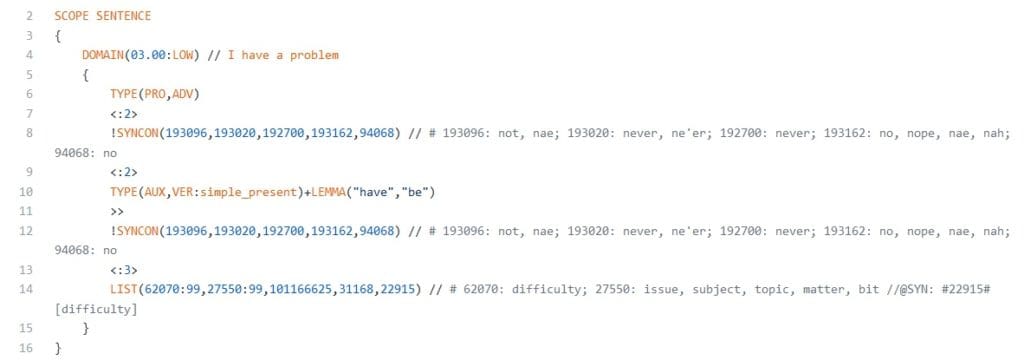An AI-Based Framework Solution to Address Email Management Challenges
Expert.ai’s Edge NL API is an on-premise API that can perform NLU tasks with no required training or extra work, offering advanced, out-of-the-box capabilities that address common use cases and can be easily customized to your specific needs.
By Filiberto Emanuele

Billions of emails are sent and received every day. They are one of our primary sources of communication and are critical to everyday life. However, we spend a far too much time looking through them to figure out their purpose, then designate a priority level to each. Email should be a benefit to us, not a burden.
Automating incoming email can drastically reduce your time spent processing them one by one and redirect your efforts to more important tasks. It can also impact a number of others including:
- The individual looking to better manage his or her inbox.
- The business looking to collect value-added information from its emails.
Given the wide availability of robotic process automation (RPA), integrating the proper NLP technology to quickly implement your email management solution may be much easier than you think.
To streamline this process, expert.ai is releasing a framework solution which offers advanced, out-of-the-box capabilities that address common use cases and can be easily customized to your specific needs.
Designing an Email Management Solution Based on Open Source NLU
Expert.ai’s Edge NL API is an on-premise API that can perform NLU tasks with no required training or extra work. If customization is necessary, it can also run a project developed through the dedicated IDE expert.ai Studio.
Our email management solution employs a custom NLP model that classifies text and discovers the sender’s intention (i.e.., whether the incoming message is a complaint, support request or request for information), while it also collects specific data such as the names of companies, people and products mentioned in a communication. Edge NL API also provides built-in sentiment analysis capabilities that, in this case, become part of the output analysis. The aim here is to cross-match sentiment and intentions with companies, people and products.
We decided to share both the pre-packaged email management edge service (which includes a Python script to quickly learn how to interact with the API) as well as the linguistic source code that makes this solution possible. This linguistic project is available on Github and is editable in our IDE expert.ai Studio (an IntelliJ plugin that you can download from our website or from JetBrains).
We strongly encourage our growing community of system integrators, NLP enthusiasts and end users to download the source code and sneak a peek under the hood. You can see firsthand how quickly you can design a solution like our email management one when expert.ai is powering it. We also encourage you to contribute to this solution to help us make it more powerful, customized to different industries and accessible to more markets (the current release works with English, Spanish, German, French, and Italian text).
Semantics: A Conceptual Approach to Text Classification
The topic modeling approach in this project relies heavily on semantics. Expert.ai’s analysis actively understands the meaning of words, effectively treating them as concepts. These concepts belong to a knowledge graph that can be leveraged for text classification and data mining. The advantage of this concept-based technique is that it makes model development easier, faster and more powerful. Expert.ai leverages a knowledge graph that is pre-loaded with a vast collection of information. This tool, among other things, understands synonyms (different words that mean the same thing) and dependencies (when something is a type of something else, or a part of something else).

The above image is a portion of code related to identifying complaints.
In this project, we also demonstrate heuristic techniques that are necessary to understanding content based on sentence structure and relationships rather than words. The sender’s intention, for example, is often recognized thanks to this linguistic capability.

This demonstrates heuristic-based conditions: “!SYNCON” avoids the annotation in case of a negated verb (e.g., “I have no problems with…”).
Leveraging Sentiment in Email Automation
Edge NL API can be set up to provide your NLP-driven project access to a de facto list of rich, built-in natural language processing features such as POS tagging, key phrase extraction, pre-trained classification and more. Here, we took advantage of built-in sentiment analysis with just a few lines of code (find both Python and Java SDK on expert.ai’s developer portal here).
How can sentiment analysis be of use to you? You could, for instance, use it to infer the severity of an issue mentioned in an email and prioritize that message accordingly.
Try it out yourself!
Here’s an animation of what’s already available today as part of this framework solution to email management:

Through expert.ai Studio, anyone can push this farther. Customization ideas include tailoring extraction and classification algorithms to specific industries and use cases (e.g., generate automated replies to your customers’ requests), or you can leverage other built-in features from Edge NL API to make the analysis richer in terms of data points.
We invite everyone to try it, adopt it, expand it and branch the project on Github. It’s in your hands now.
Dive Deeper into the Email Management Solution
Learn more about the Email Management framework solution including where to find our open-source project and how to run a pre-packaged service that you can test immediately.
